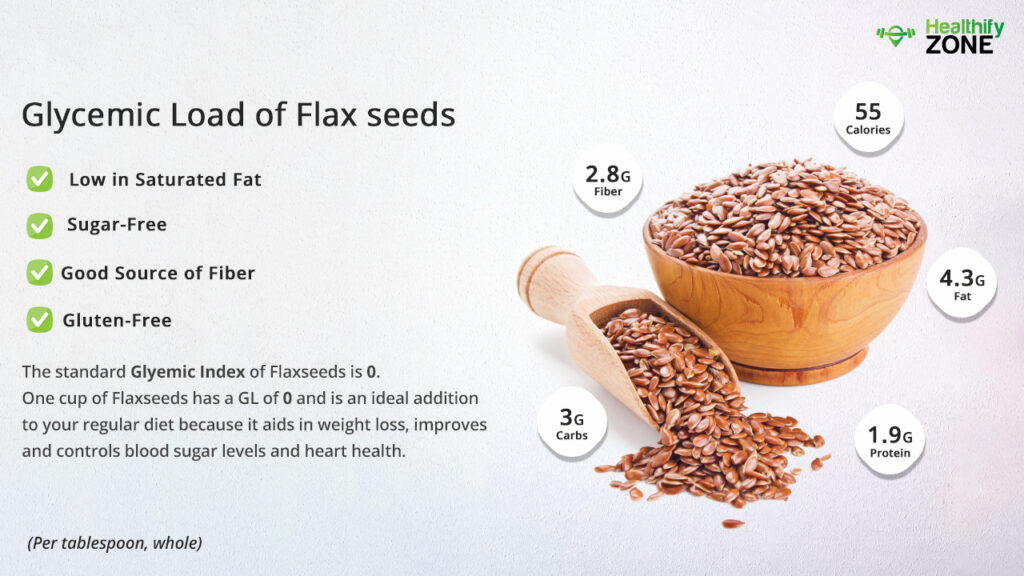Flaxseed is a food with a low glycemic index (GI), with a value of 35. Flax, commonly referred to as linseed, is a flowering plant used for its fiber. The tiny seeds of these plants are called flax seeds. All macronutrients, including carbs, are relatively abundant in flaxseed. However, dietary fiber makes up about 95% of those carbohydrates. Flax seeds’ GI has not yet been calculated. They are thought to have a low glycemic index because of the high dietary fiber content. Daily flaxseed ingestion has been shown to increase insulin sensitivity in overweight or obese prediabetic people and lower glucose and insulin levels. Flaxseed can enhance diabetic and cardiovascular indicators, indicating the potential for use as an additional strategy for managing type 2 diabetes.
Are Flaxseeds Safe for Diabetes?
People with diabetes may benefit from the numerous health advantages of flax seeds and flaxseed oil in managing their disease. They may increase insulin sensitivity, decrease risk factors for heart disease, and enhance blood sugar control since they are high in fiber, omega-3 fatty acids, and special plant chemicals.
You should exercise caution when using them, though, as they can interact with other diabetes treatments that have been given.

Are Flaxseeds Suitable for Weight Loss?
Because of their particular nutritional qualities, flax seeds can help in weight loss. They are not a miraculous element, but they do have legitimate advantages. Instead of replacing a good diet and fitness regimen, flax seeds perform best as a supplement. In moderation, flax seeds are harmless for the majority of people. But before ingesting flax seeds to reduce weight, there are a few things to consider.
Avoid eating unripe or raw flax seeds. In addition to causing indigestion, they could also contain harmful substances.
Supplements containing flaxseed should be avoided while pregnant since they can have negative hormonal consequences. Regarding the safety of consuming flax seeds, while you are nursing, little is known.
Make sure you’re getting enough water if you’re utilizing flax seeds in any way. When taking flaxseed supplements, if you aren’t drinking enough water, your body won’t be able to effectively digest the extra fiber you’ve ingested. Constipation and stomach cramps may follow from this.
What is the Best time to Consume Flaxseeds?
When consumed before bed, flax seeds can raise your levels of fatty acids, which may aid in preventing heart disease by lowering blood pressure and managing cholesterol.
The Bottom Line: The Glycemic Index of Flaxseeds is 35.
Flax seeds and flaxseed oil are abundant in soluble fiber, ALA, and SDG, all of which may lower the risk of heart disease and enhance insulin sensitivity and blood sugar regulation. Consuming flax seeds or flaxseed oil can affect how well blood sugar and cholesterol-lowering drugs work. As a result, you should exercise caution before eating them.
For those who have diabetes, maintaining optimal blood sugar levels is essential, and fiber plays a significant role in doing so. It is regarded as a low-glycemic food because of its high fiber content. This implies that eating them won’t create a surge in your blood sugar levels; instead, they’ll climb gradually, aiding in blood sugar regulation.
Their soluble fiber content, notably the mucilage gums in them, which slow down food digestion and lessen the absorption of some nutrients like sugar, can be partly blamed for this impact.